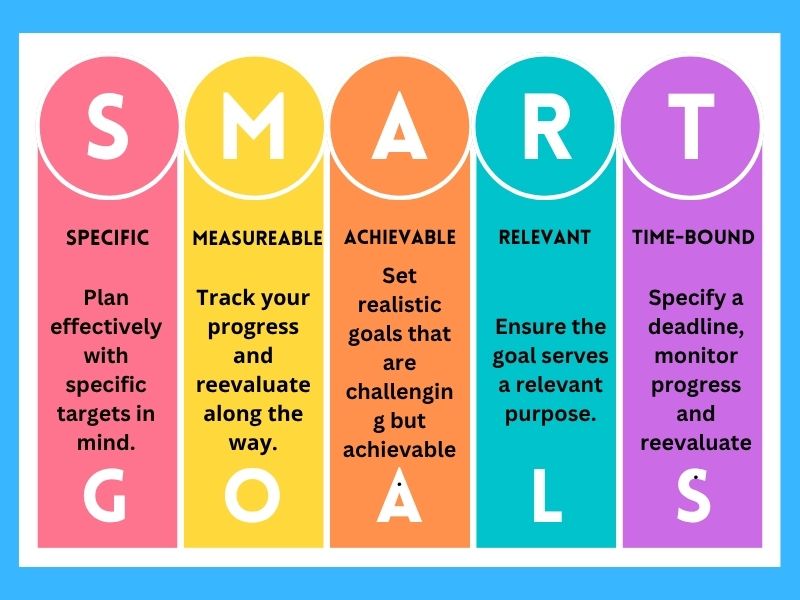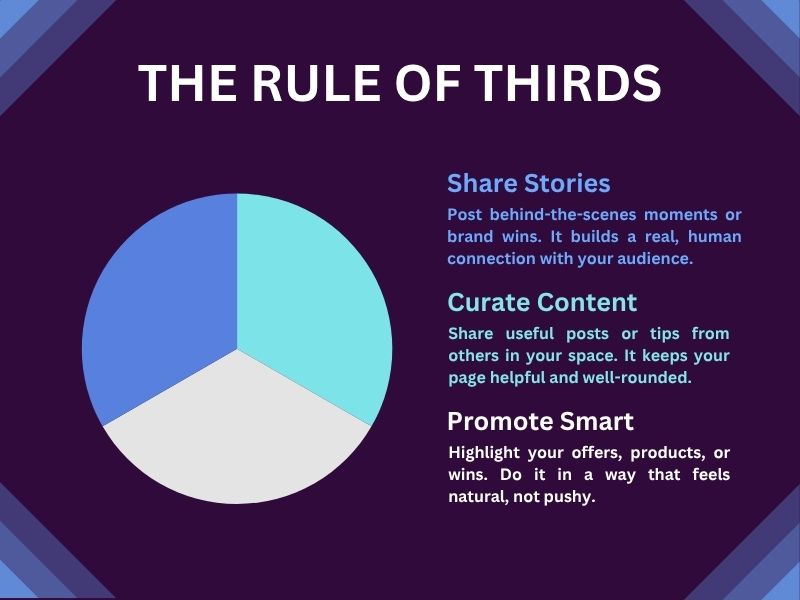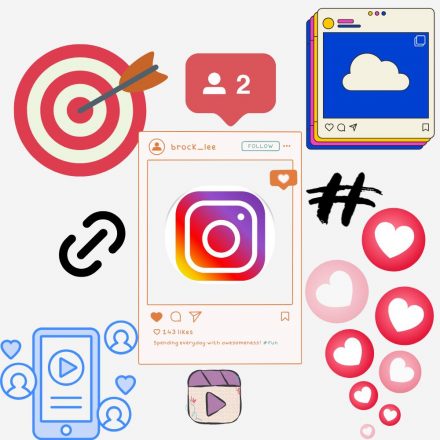Facebook marketing strategy is often the first thing that comes to mind when someone says “social media marketing,” and for good reason. With over 3 billion monthly active users in 2025, Facebook isn’t just a social platform; it’s a digital universe where people shop, scroll, and discover brands daily.
So, why is Facebook good for marketing?
Simple. It’s where your audience already spends time. Whether they’re checking updates from friends or exploring products on Facebook Marketplace, people are constantly interacting with content.
That’s exactly why businesses, from mom-and-pop shops to global giants, invest in a solid Facebook marketing strategy.
It helps build brand awareness, grow communities, and even drive sales. You can use it to post engaging content for free or run laser-targeted ads that reach just the right audience.
Think of Facebook as a digital shopping mall where your brand can open a store, shout from the rooftops, or have one-on-one chats with visitors. And whether you’re new to marketing or just want better results, this guide will help you create a strategy that actually works.
Setting the Foundation
Before diving into posting and ads, your Facebook marketing strategy needs a strong base. Setting clear goals and knowing your audience will make everything else easier and more effective.
Set SMART Goals for Success
Before jumping into posts and ads, your Facebook marketing strategy needs a solid game plan. Like building a house, you don’t start with the paint, you start with the foundation.
Begin by setting clear goals. Not just vague ideas like “get more likes.”
Think SMART—Specific, Measurable, Achievable, Relevant, and Time-bound.

For example, “increase page engagement by 20% in 3 months” or “generate 50 leads from Facebook within 60 days.” These keep your efforts focused and measurable.
Understand Your Target Audience
Next, know who you’re talking to. Facebook provides tools like Audience Insights to help you delve deeper into your followers’ age, gender, location, and interests. The better you understand your audience, the more effective your content and ads will be. It’s like having a cheat sheet for what your potential customers actually care about.
Optimize Your Facebook Business Page
Your Facebook Business Page is your online storefront, so make a great first impression. Use a high-quality profile photo and eye-catching cover image. Fill out the “About” section completely. Think of it as your brand’s resume, professional but with personality.
Budget Wisely for Paid Efforts
Let’s talk cash. Facebook is a “money-motivated platform,” meaning organic reach alone may not get you far. That’s okay.
Even a small ad budget can go a long way when aligned with your goals. Decide how much to spend on Facebook marketing ads or boosted posts based on what you want to achieve.
Now that your foundation is rock-solid, it’s time to bring your strategy to life with awesome content.
Developing a Content Strategy (Organic Marketing)
Great content is the heart of any successful Facebook marketing strategy. By mixing different types of posts and engaging your audience, you can build trust and grow your community without spending a dime.
Why Organic Content Still Matters
Organic reach isn’t dead; it just takes effort. A well-thought-out Facebook marketing strategy includes a steady stream of free content that keeps your brand visible and your audience engaged.
Think of it like watering a plant. No ads? No problem, at least not right away.
Posting regularly helps build relationships and trust. It’s your chance to show your brand’s personality, offer value, and stay top of mind without spending a dime.
Mix Up Your Content Formats
Don’t just post the same thing every day. People scroll fast, so keep it interesting. Mix up your content with text updates, eye-catching photos, fun videos, and real-time Facebook Live sessions.
Try out Facebook Stories for quick, behind-the-scenes snippets. Even simple link posts to your website or blog can drive traffic.
Use the 80/20 Rule: 80% of your posts should educate, entertain, or engage. Only 20% should be directly promoted. Think about tips, how-tos, user-generated content, customer shoutouts, and relatable memes.

Want a pro tip?
Follow the Rule of Thirds: one-third promotional, one-third curated, one-third personal. This keeps your page balanced and human.
Create a Content Calendar
Planning ahead helps you stay consistent. A content calendar lets you line up posts around holidays, product launches, or fun-themed days. It also helps avoid the last-minute scramble of “what do I post today?”
There are free tools like Trello, Plannable, and Hootsuite to keep things organized. Just a few hours a month can save you stress and keep your strategy on track.
Engage With Your Audience
Posting is only half the job; engagement is the other. Reply to comments, answer DMs, and like your followers’ content. Ask questions in your posts. Run simple polls. Host giveaways or contests. These little touches build community and boost visibility.
And remember: the algorithm loves active pages. The more people interact, the more Facebook shows your posts to others.
Now that your content game is strong, let’s add some fuel to the fire with paid advertising.
Paid Advertising and Campaigns
Organic reach can only take you so far, so it’s time to turn up the volume with paid advertising. Facebook marketing ads help you reach new customers and achieve your business goals faster and smarter.
- Why Go Paid?
Let’s be honest; Facebook isn’t just a friendly place for cat videos anymore. It’s a powerful advertising machine. While organic content builds relationships, Facebook marketing ads help you reach beyond your current followers and drive serious results.
Think of it like this: organic posts are word of mouth, but ads are a megaphone. And in a busy online world, sometimes you need a megaphone.
- Set Up Ads Manager and Pixel
Before running any ads, set up Facebook Ads Manager through Meta Business Suite. This is your control center, where all the campaign magic happens. It may look intimidating at first, but trust me, once you get the hang of it, it’s like driving a very fast (and targeted) car.
Also, install Meta Pixel on your website. It’s a small bit of code that tracks user actions, like purchases or form submissions. It’s essential if you want to measure success and retarget visitors who didn’t buy it the first time.
- Choose the Right Campaign Type
When setting up your Facebook marketing campaign, think back to your goals.
Want more page likes? Go for engagement.
Want sales? Use conversions.
Looking to drive traffic to your website? Traffic campaigns are your best bet.
Facebook offers tons of ad formats – single images, carousels, videos, slideshows, and even instant-experience ads. Start simple, test things out, and see what clicks.
- Know Your Audience
One of Facebook’s biggest strengths is its laser-focused targeting. You can narrow it down by age, location, interests, job titles, behavior, you name it. Create custom audiences based on past visitors, email lists, or video views.
Do you want to grow faster? Try Lookalike Audiences.
Facebook finds new users who are like your best customers. It’s like cloning your top buyers, without sci-fi.
- Test and Tweak Everything
Don’t guess; test. Run A/B tests to see what works best. Maybe one headline gets more clicks. Maybe one image converts better. Keep experimenting and adjusting to improve results and lower your costs.
Paid campaigns aren’t just about spending money. When done right, they’re about multiplying your results.
Now that your ads are up and running, how do you know they’re working? Let’s dive into measuring and optimizing.
Analyzing and Optimizing Performance
Tracking how your Facebook marketing efforts perform is key to long-term success. By analyzing data and learning from competitors, you can fine-tune your strategy for better results.
- Track the Right Metrics
Running a Facebook marketing strategy without tracking is like driving blindfolded. You need to know what’s working and what’s not. Facebook offers handy tools like Page Insights, Meta Business Suite, and Ads Manager to help you keep an eye on key numbers.
Focus on metrics like impressions (how many people saw your posts), engagement (likes, comments, shares), reach, clicks, and conversion rates. If you’re running ads, watch cost per click (CPC) and return on ad spend (ROAS).
Use UTM codes for links so you can track traffic and sales from Facebook inside Google Analytics. This way, you’ll know exactly where your leads are coming from.
- Learn from Your Competitors
Don’t reinvent the wheel. Peek at your competitors’ Facebook pages and ads to see what’s resonating with their audience. Facebook’s Ad Library is a goldmine to check out active ads in your industry.
Notice which posts get the most likes or shares. What kind of messaging or offers are they running? Use this intel to inspire your own campaigns and spot gaps you can fill.
- Keep Improving Your Strategy
Your Facebook marketing strategy isn’t set in stone. Regularly review your data and tweak your content and ads. Maybe videos perform better than images for your brand. Or your audience loves contests.
Stay updated on Facebook’s latest features and algorithm changes, which impact how your posts show up. The best marketers adapt quickly and learn constantly.
Remember, small improvements add up. The more you optimize, the better your results will be over time.
Advanced Tips and Tools
Ready to take your Facebook marketing strategy to the next level?
Leveraging groups, Messenger, influencer partnerships, and powerful tools will help you stand out and grow faster.
- Harness the Power of Facebook Groups
Facebook Groups are like little communities within the platform. They’re perfect for building loyalty and engaging directly with your audience. Consider creating a group around your niche where customers can share tips, ask questions, and connect. This adds a personal touch that boosts your Facebook business marketing strategy.
- Sell More with Facebook Shops and Marketplace
Social commerce is booming, and Facebook makes it easy to sell directly on the platform. Setting up a Facebook Shop or listing products on Marketplace can turn casual browsers into buyers without leaving the app. It’s a smart move for small businesses looking to expand their sales channels.
- Use Facebook Messenger for Customer Support
Customers love quick replies. Using Facebook Messenger for support or FAQs builds trust and improves satisfaction. You can even set up chatbots to answer common questions instantly, saving you time and making your marketing more responsive.
- Collaborate with Influencers
Influencer marketing on Facebook is a proven way to extend your reach and credibility. Partner with influencers who resonate with your audience to showcase your products or services authentically. It’s one of the best Facebook marketing strategies to grow your brand fast.
- Promote Your Facebook Presence Everywhere
Don’t keep your Facebook page a secret. Add links to your website, blog, email newsletters, and other social media channels. The more places people see your page, the easier it is to build followers and engagement.
- Leverage Helpful Marketing Tools
Besides Facebook’s native tools like Ads Manager and Meta Business Suite, consider apps like Canva for design, Hootsuite for scheduling, and Google Analytics for deeper insights. Using the right tools makes managing your Facebook marketing campaigns smoother and more efficient.
Conclusion
Facebook remains one of the most powerful platforms to grow your brand, connect with customers, and drive sales. A smart Facebook marketing strategy blends clear goals, engaging organic content, and well-targeted ads to make your business shine.
Remember, success won’t happen overnight. Keep learning, testing, and adapting your approach. With patience and consistency, you’ll see your efforts pay off through stronger relationships, better visibility, and more leads.
So, are you ready to start crafting your own winning Facebook marketing strategy? The tools and tips are all here, now it’s your turn to act and watch your business grow!


















Leave a Comment